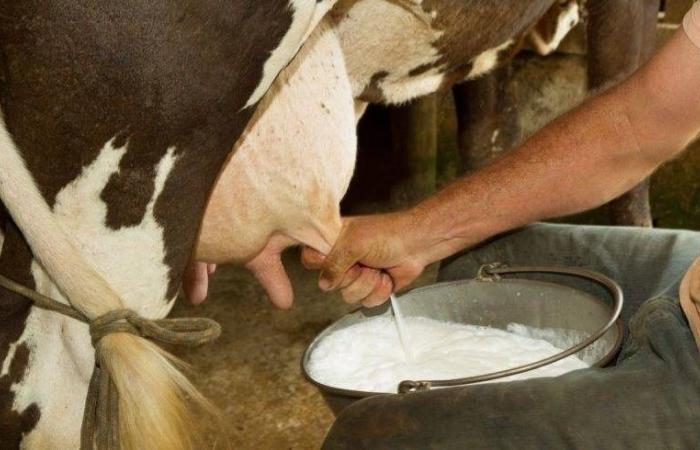In the heart of the arid plains of Morocco, where once the gentle mooing of dairy cows could be heard and where green meadows stretched as far as the eye could see, there now stands a deafening silence. For six years, the country has suffered the torments of a relentless drought, transforming these fertile lands into merciless deserts and forcing farmers to abandon their farms for the uncertain lights of large metropolises.
Dairy production, a vital sector of the national economy, is now under the yoke of this climatic catastrophe. Cows, once thriving, have become rare. The drastic drop in rainfall has led to a significant decrease in forage, reducing milk production to historically low levels.
Faced with this collapse, the government, in an attempt to satisfy national demand, opted for the massive importation of powdered milk to fill the milk deficit. By suspending customs duties, the state hoped to compensate for the lack of fresh milk and fill supermarket shelves. However, this measure, far from supporting local producers, has plunged them into an even more precarious situation.
The government’s decision, although intentional, paved the way for powdered milk to dominate the market. At a cost of around 2.20 dirhams per liter, powdered milk has become a compelling economic alternative for manufacturers, compared to natural milk which costs nearly 4.30 dirhams per liter. This difference of almost 100% inevitably encouraged producers to turn to imported products, thus devastating the local production chain.
Farmers, unable to compete with these prices, are forced to sacrifice their livestock. Unable to cover production costs, many farmers sell their cows for meat, deemed more economically viable in the current depressing context. Thus, the insufficiency of natural milk has led some to extremes, such as the tragic emptying of this precious liquid in the fields or its production into animal feed.
Distress in rural areas
Forced by circumstances to abandon a way of life inherited for generations, farmers flock to big cities in the hope of employment. This creates additional pressure on these already saturated urban centers, making it difficult to absorb unemployment and fueling an increasingly obvious social crisis.
The voices of farmers, although often ignored, now resonate within the walls of Parliament. The Progress and Socialism team of the House of Representatives expressed its concern by submitting a written question to the Minister of Agriculture, Ahmed Sadiki. They are calling for concrete measures to alleviate the harmful effects of the importation of powdered milk on the local dairy sector and to minimize the colossal economic losses suffered by natural milk producers.
A glimmer of hope could, however, pierce this dark horizon. Initiatives to reintroduce sustainable and resilient agricultural practices could represent a long-term solution. Training programs for farmers are being studied, focusing on water management and the adoption of modern agricultural techniques adapted to the arid climate.






